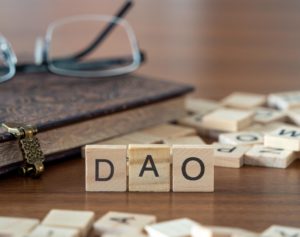The law in most countries has long recognized entities other than individual humans a matter of social policy. Various types of groups or organization have arguably had some degree of legal recognition in English law back to the time of the Domesday book. Entities recognized by the law are subject to the benefits of legal enforcement of applicable rights (e.g., property ownership rights) and burdens (e.g., taxation). The legal personality of a corporation is neither more nor less real than that of an individual human being. Legal identities are thus a fundamental characteristic of modern society. Corporations are traditional, non-human legal entities. In neoclassical microeconomics, a corporation exists and makes decisions to make profits. In this sense they exist to minimize the costs of coordinating economic activity. Public benefit corporations have recently emerged as a new type of corporation. Technology advancements have also created robots and Decentralized Autonomous Organizations (DAOs) that are also gaining legal recognition.

Decentralized Autonomous Organization (DAO)
Corporate social responsibility is usually defined in terms of corporate actions that appear to serve some social purpose beyond the interests of the corporation and legal requirements. Traditional corporations approach pressures for corporate social responsibility with varying degrees of conviction. The benefits and challenges of the cyber approaches for corporate entities are developed and positioned within broader digital transformation trends impacting public and private sectors and accelerated by the recent pandemic. Government-imposed mobility restrictions in response to pandemic warnings forced many individuals and organizations to aggressively explore ways to work online effectively.
DAOs provide an automated and decentralized approach to corporate governance that ostensibly provides transparency while eliminating the typical corporation’s agency costs from the board of directors. Early implementations of DAOs to automate organizational governance and decision making were intended to support individuals working collaboratively outside the traditional corporate form. Unincorporated blockchain organizations, however, have a legal problem – the default legal treatment considers them a form of partnership. Partnerships have the legal consequence of joint and several liability in the event of torts by one of the partners which could result in unexpected liabilities for blockchain participants. DAOs are implemented as software (smart contracts – code) executing on blockchains. To the extent that regulatory requirements can be reduced to code, there exists a potential for automating those regulations. As a technology, DAOs are relatively recent software innovations, with initial code becoming available around 2016. Several cybersecurity vulnerabilities identifying DAOs have already been publicly disclosed.
Transparency is a virtue in public administration and in the implementation of social policy. With DAOs operating on blockchains, transparency is achievable through consensus records on a public blockchain. Public administration does not require the creation of bloated bureaucracies. Both explicit delegation and private sector equivalents can provide effective alternatives, even in traditional government sectors. Judicial systems, for example, are a traditional feature of the public administration of justice; but are often considered slow and expensive. Private arbitration mechanisms (including blockchain mechanisms) have emerged that provide cost-effective dispute resolution for many commercial disputes. The board of directors of the B-Corp, at a time of their choice, can choose to selectively emphasize specific social policy objectives. With a DAO, the social policy is implemented as code, i.e., a smart contract. In contrast to other e-government approaches not based on legal entities, both B-Corps and DAOs provide the advantage of an entity focused on a specific purpose. DAOs arguably provide a more automated and transparent solution than B-Corps.
For further Information refer to Wright, S. A. (2022). DAOs vs. PBCs for Public Administration and Social Policy Entities. Handbook of Research on Cyber Approaches to Public Administration and Social Policy, 55-73.
